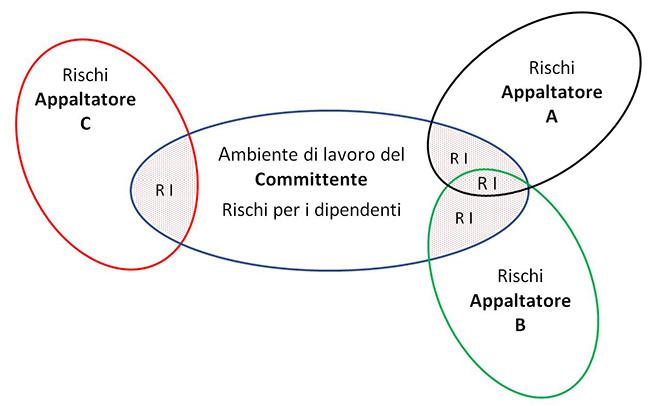
The creation of the Single Document for Interference Risk Assessment (more commonly known by the acronym DUVRI) is a legal requirement in the field of workplace safety, introduced by Article 26 of Legislative Decree 81/2008 and subsequent amendments. It stipulates that, in the case of outsourcing work to an external contracting company or autonomous workers, the Employer of the commissioning company (or their representative) must assess the presence of interference risks and promote cooperation and coordination between the companies to protect health and safety at work. This involves preparing a single Interference Risk Assessment Document that indicates the measures taken to eliminate or, where this is not possible, to minimize such risks.
The DUVRI, which must be attached to the contract for the work or service, under penalty of nullity, should not include measures to eliminate risks specific to the activities of individual contracting companies or individual autonomous workers, but only the risks arising from potentially present interference during the performance of the service.
The purpose of the DUVRI is therefore to:
- formalize the Client's commitment to promote cooperation and coordination between PoliTo and the external contractor(s);
- identify interference risks and the corresponding prevention and protection measures necessary to eliminate or minimize them;
- estimate any interference-related costs, i.e., the expenses required for the proper and effective management of interference risks.
- Provide the contracting company with detailed information about the existing risks in PoliTo environments where they are intended to operate and about the prevention and emergency measures to be adopted, so that they can adequately inform their workers.
A variety of events, such as conferences, seminars, lectures, exhibitions, oncerts, sports events, take place at Politecnico.These events are often closely related to teaching or research activities, while in other cases, PoliTo spaces are used by third parties for external activities.
The Prevention and Protection Service provides support regarding health and safety aspects possibly connected with the organization of the event, particularly concerning interference risks.
When an external supplier of products or services enters the premises of PoliTo to move goods or perform work, they must be informed by the client about safety issues of the environment and the correct procedures to follow to prevent the occurrence of interference risks between the supplier's activities and the institutional activities that take place within the university buildings.
Coordination between the client and the supplier, for the purpose of identifying and managing interference risks, must be formalized in the DUVRI (Single Document for the Assessment of Interference Risks).